Leading change
Bhekie Mamba plans to position CSET as a world-class college
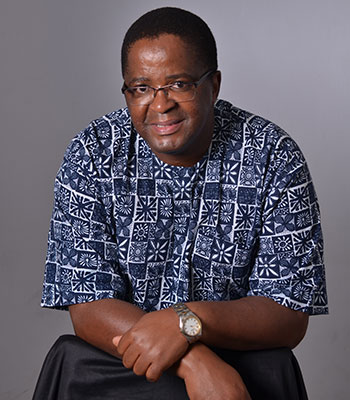 Having taken up the position of Executive Dean of the College of Science, Engineering and Technology (CSET) earlier this year, Prof Bhekie Mamba said he feels humbled by the confidence the university has placed on him in being able to steward this college. “It’s also an honour to work with academics of high esteem and be given the opportunity to lead this college,” he said.
Having taken up the position of Executive Dean of the College of Science, Engineering and Technology (CSET) earlier this year, Prof Bhekie Mamba said he feels humbled by the confidence the university has placed on him in being able to steward this college. “It’s also an honour to work with academics of high esteem and be given the opportunity to lead this college,” he said.
Mamba believes the time is now to cement the university’s position in South Africa as the ultimate leader in open, distance, and e-learning (ODeL) in science, engineering and technology. “I want to position CSET as a world-class college when it comes to the scholarship of science, engineering and technology. When it comes to ODeL, we want to show that you can learn science and engineering at a distance,” he said.
Some of the best brains in the country
In terms of research, Mamba believes Unisa, and specifically CSET, has some of the best brains in the country when it comes to academics. “The problem is that we tend to look down on ourselves. What we need to do is generate new knowledge using the infrastructure that the university has given to us, and which has generously been purchased for us to be able to compete at a world-class level.”
Mamba wants other universities to see that there is much that is being published and emerging from the Science Campus. “We also want to publish our research in high-impact journals to publicise whatever we’re doing so that other scholars know what we are about,” he explained. It doesn’t end there.
“We would also like to have strategic collaborations with other universities in the world—top class universities that will actually challenge us and stimulate our research agenda.”
He said that they already have a number of collaborations that have already been established so now it’s just a matter of nurturing these collaborations and strengthening them, and having faculty exchange in terms of researchers being able to move between the universities. They are also looking at student exchange programmes where students are able to spend research time at other institutions where they will be able to learn new techniques and also experience being at other universities.
Implement technologies in communities
Mamba believes CSET needs to make themselves a lot more relevant. So how will they do that? “Through our community engagement initiatives. We should be able to structure our research and teaching in such a way that it talks to what is happening within the community. We are talking about decolonising and Africanising the curriculum. I want to believe that science, as much as being an international discipline, also needs to have relevance where we are actually operating. That is the mission to us, for the community to start appreciating the science that we do. If for example we have to clean water or generate energy, we must use our technologies to do so,” he explained.
In addition to collaboration with communities, Mamba said it’s just as important to look into partnerships with industry. “If we think we are good at what we are doing, then we should have the confidence to talk to industry and enthuse them. By doing so we will be addressing a number of things such as our researchers getting exposed and showing that the research we are doing has got relevance and can be commercialised.”
“Unisa is one institution that can surely say it’s an African university. Unisa has gone beyond this just being a slogan. We have students all over the continent. So riding on this footprint, which Unisa has established, we should not be too much involved with just collaborating with overseas and top institutions without realising our context is in Africa. We should garner strategic partnerships within the African continent,” he said. Mamba added that it’s important to promote the enrolment of students from other parts of the African continent who, through circumstances, are not able to access higher education in an ODeL mode. “We should be able to cater for such people,” he urged.
At CSET we are not window dressing
According to a recent Huffington Post article, there are too few women engineers in South Africa. It was reported that many women engineers say they left the industry because of the gender-bias they experienced and that more women-to-women mentorship can help new entrants cope. Mamba said this kind of culture, which suggests that women cannot be involved in science and engineering and technology, definitely needs to be worked on and he believes CSET is definitely doing its part. “At CSET we are not window dressing. We are showing that there are women in these fields who can perform exceptionally well. This is something we are very proud share.”
Right now Unisa is all about helping students ‘Define tomorrow’. Mamba is excited to play his part through CSET and pushing this vision forward. “The future does not just happen by itself. Whatever research that we are doing will actually determine the kind of technologies we will be using in the future.” He said that the students that Unisa is teaching now, and how and what they are being taught, will ultimately determine the country we have in the future.
*By Kirosha Naicker
Publish date: 2017-09-29 00:00:00.0


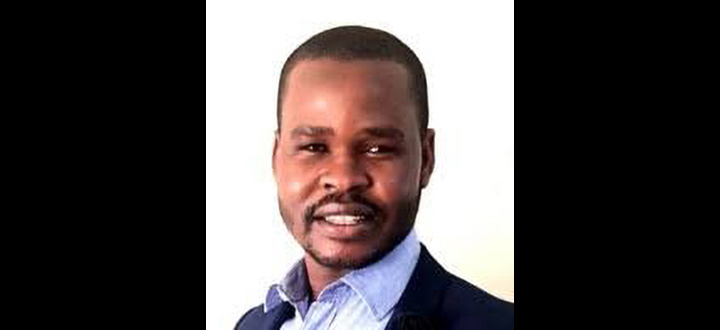 Mental health among men in the workplace needs more attention
Mental health among men in the workplace needs more attention
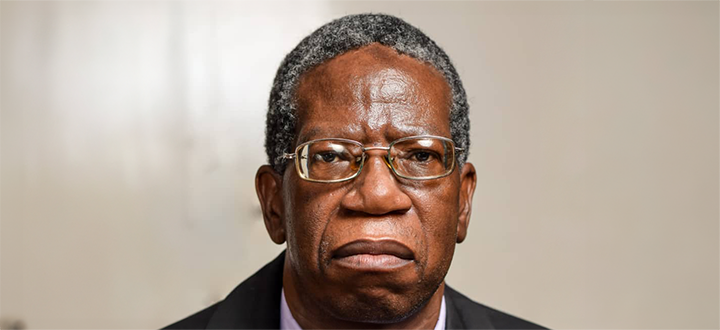 "I owe everything to Unisa and my late supervisor's priceless mentoring"
"I owe everything to Unisa and my late supervisor's priceless mentoring"
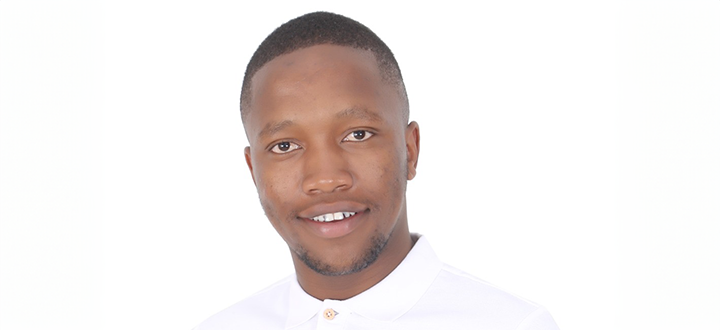 Majikijela - a queer scholar raising homosexuality awareness through his work
Majikijela - a queer scholar raising homosexuality awareness through his work
 Unisa and Inqaba Biotec unveil groundbreaking DNA research platform
Unisa and Inqaba Biotec unveil groundbreaking DNA research platform
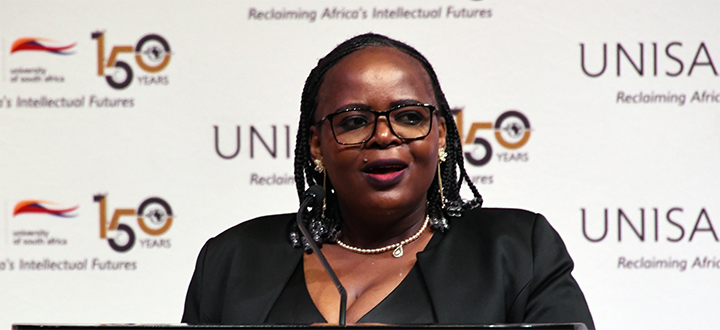 College of Law appoints esteemed scholar as executive dean
College of Law appoints esteemed scholar as executive dean